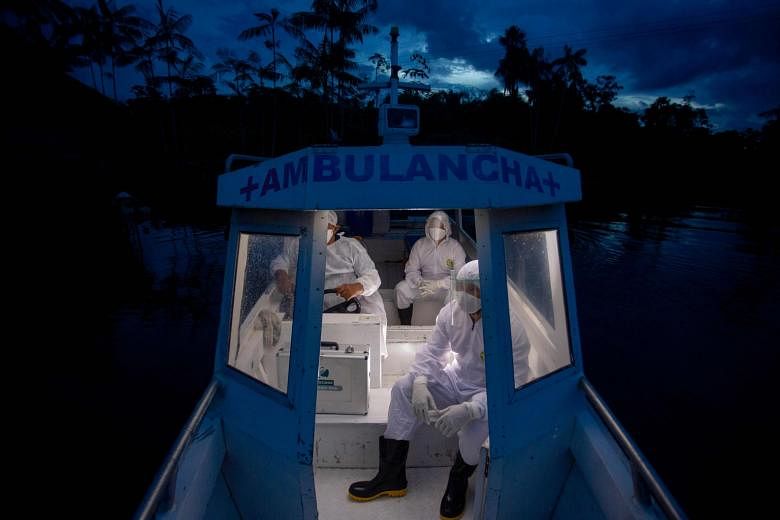MONTEVIDEO • Cash-strapped Latin American governments face severe geographical, economic and social challenges in trying to ensure life-saving Covid-19 vaccines are made available to vulnerable populations, experts say.
Megacities like Sao Paulo, mountain ranges like the Andes as well as the vast Amazon basin pose just a few of the geographical problems for distributors, given the vital need to maintain the cold chain to preserve the vaccines.
Transporting vaccines "to the most distant parts of the big cities and to peripheral neighbourhoods, with the need to conserve the cold chain, will be the first major challenge", Colombian epidemiologist Carlos Trillos said.
Governments also face a race against time to provide training to those handling the doses throughout the cold chain, he said.
Amazon basin countries had an early taste of the geographical challenges ahead for their vaccination campaigns, after health workers struggled to provide care for three million indigenous people scattered throughout the rainforest, an area almost seven times the size of Spain.
Vaccine campaigners also worry about rampant disinformation in the continent worst affected by the coronavirus pandemic.
Some 12.5 million of the 630 million Latin Americans have been infected with the coronavirus and at least 435,000 have died, a third of the total number of deaths worldwide, according to official data.
The process will be "challenging and costly", said Dr Jarbas Barbosa, deputy director of the Pan American Health Organisation.
The organisation expects to distribute vaccines in the region between March and May next year through Covax, a World Health Organisation initiative to guarantee equal access for impoverished countries.
All Latin American and Caribbean countries have joined Covax, although some lack funds to purchase vaccines themselves, Dr Barbosa said. In any case, Covax will provide enough vaccines for only 10 to 20 per cent of the population, forcing many governments to sign separate bilateral agreements with laboratories and biotechnology companies.
Countries in the region are having to spend significant amounts of money on these pre-purchases just as they are experiencing historic economic contractions from the impact of the pandemic.
Lower-income countries like Bolivia, Haiti, Guyana and several Caribbean island states are betting on the Covax-eligible status to receive vaccines without contributing funds. So are El Salvador, Honduras and Nicaragua, recently battered by hurricanes Iota and Eta.
Covax's latest projections estimate that vaccinating just 20 per cent of the region's population will cost more than US$2 billion (S$2.7 billion).
Meanwhile, Pfizer gave the office of Brazil's health regulators results of the tests of its Covid-19 vaccine, a necessary step to approve and register the vaccine, the United States-based pharmaceutical company said on Wednesday.
"This is an important step so that the vaccine can be available in Brazil," Pfizer said in a statement in Portuguese.
Representatives of Pfizer and Brazil's National Health Oversight Agency met on Wednesday to begin the process of presenting the results.
AGENCE FRANCE-PRESSE

